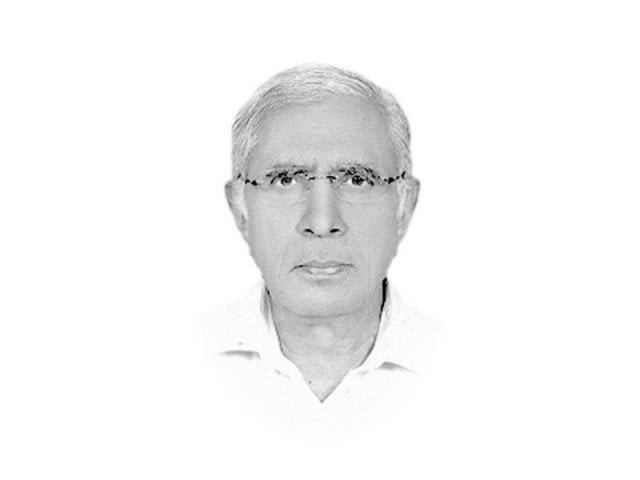A four-front confrontation
When you sum up these anti-Pakistan efforts being made by all these lobbies

The writer served as executive editor of The Express Tribune from 2009 to 2014
Three of these fronts are too hot and one very cold. Of the three hot fronts, the one that is being fought inside the country seems to be nearing its end as Radd-ul-Fasaad, the third military campaign launched against the TTP after Rah-e-Raast in 2010 and Zarb-e-Azb in 2014, has succeeded to a great extent in clearing militant strongholds.
The other two of the remaining three fronts relate to beyond- the- borders confrontations. The one that is being fought across the Line of Control (LoC) and the Working Boundary continues to remain hot but guns were silenced the other day after a ceasefire agreement was reached between the rival directors general of military operations.
However, with the general elections in India only months away, this could be only a temporary interlude because one cannot rule out the possibility of Indian Prime Minister Narendra Modi once again using the bogey of Pakistan to win votes. To establish his anti-Pakistan credentials, he would once again be talking of conducting surgical strikes across the LoC which he would once again try to sell to his public by pointing at some bodies of civilians killed in the cross-fire on our side of the LoC.
The last of three hot fronts concerns the trust deficit from which both Pakistan and Afghanistan are suffering which is frequently punctuated with firing from across the Durand Line. Pakistan has tried to appease the Afghan government by fencing the border points from which the Afghans claim the Haqqanis enter their country from Pakistani sanctuaries and launch terror attacks on Afghans. But to no avail. Pakistan is, however, using fairly successfully the same fencing to make it impossible for the TTP terrorists to enter Pakistan.
The Afghan hot front leads us to the cold front—the fourth one. The US believes that it is losing the Afghan war because of Pakistan. Washington believes that Pakistan-based terrorist groups would continue to present a sustained threat to US interests in the region while planning attacks in India and Afghanistan.
There is a clear pro-India tilt in the US policy for the South Asian region.
Here is why it is so. There are a number of highly influential lobbies in Washington working overtime to create problems for Islamabad and to undermine its socio-economic and diplomatic interests.
The most tendentious of these lobbies is the one sponsored and funded by the American-Indians. The anti-proliferation lobby, a highly influential circle of civilian and political activists in Washington also seems willing to join in hoping to use the joint efforts to attain its own objective of relieving Pakistan of its nuclear assets.
The Jewish lobby has never been known to have missed an opportunity to join the anti-Pakistan voices in Washington.
And who does not know that most of the influential think tanks in Washington suffer from an acute anti-Russia and anti-China bias.
As since CPEC’s launch, our country has, by association, become a target of the anti-China lobby. And since dubiously sourced media stories of the Afghan Taliban getting material support from Russia started appearing in the international media, the anti-Russian lobby has, again by association, started classifying Pakistan as a country to be reviled.
And the US media influenced by all these lobbies seem to have turned unduly hostile towards Pakistan.
When you sum up these anti-Pakistan efforts being made by all these lobbies, the effect appears to be rather highly suffocating for Pakistan in Washington. We seem to stand friendless in the capital of one of the major powers in today’s multipolar world.
The best way to deal with imperialist countries like the US is to keep mutual conflicts reduced to the minimum and maintain focus on issues on which the two can cooperate — a big challenge for the next elected government.
Published in The Express Tribune, June 2nd, 2018.
Like Opinion & Editorial on Facebook, follow @ETOpEd on Twitter to receive all updates on all our daily pieces.















COMMENTS
Comments are moderated and generally will be posted if they are on-topic and not abusive.
For more information, please see our Comments FAQ